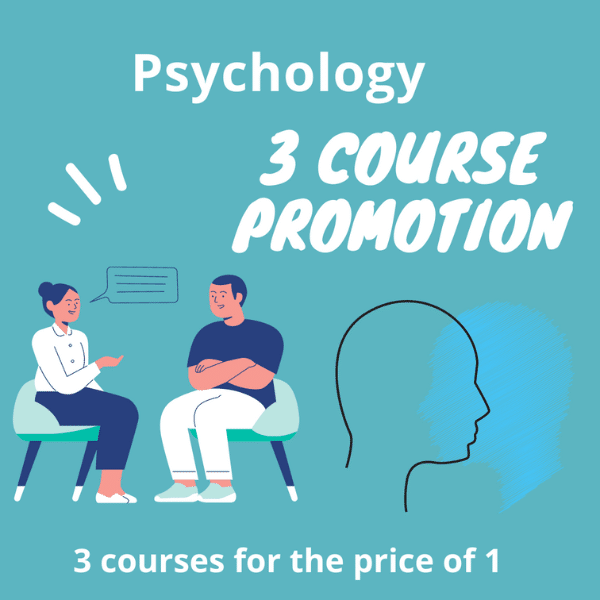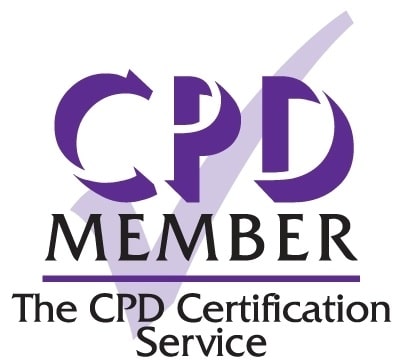
Diploma in Cognitive Behavioural Therapy
"The happiness of your life depends upon the quality of your thoughts"
- Accredited Course
CBT Course Benefits
⭐️ This Diploma in Cognitive Behavioural Therapy will teach you time-tested psychology principles in a way that magically brings about your personal growth while at the same time enhancing your career options by earning an ACCREDITED Diploma along the way.
Develop self-esteem
► Support people when they're most vulnerable and help them recover
Improve mental wellness
► Understand how our core beliefs can result in poor mental health.
Increase self-awareness
► Show people how to establish appropriate, boundaries and practical goals.
Course Content
⭐️ What is CBT
Historical development of CBT - What happens in CBT? - What conditions can CBT treat? - Why is CBT an effective therapy?
⭐️ Theories of CBT
Classical and Operant conditioning- Social modelling- The impact of cognitions and emotions - Cognitive methods and techniques- The nature of automatic thoughts
⭐️ BEHAVIOURAL CHANGE
Ellis’ Rational Emotive Therapy- Therapeutic style- Process of therapy- Distinguish between irrational and rational beliefs.
⭐️ CBT Skills
CBT and the counseling relationship- CBT Micro-skills- Applying cognitive techniques- Daily Record of Dysfunctional Thoughts- The Dysfunctional Attitude Scale- Socratic questioning. and guided discovery
⭐️CBT FOR ADDICTION
A cognitive perspective on Addictions - CBT and Substance abuse - Cognitive Processes of substance abuse - Modifying behaviour - Addiction and Behavioural change.
⭐️ CBT for Anxiety
The symptoms of anxiety - Phobias - Psychosocial fears - Generalised anxiety disorder - Self-esteem, anger and hostility.
Words of comfort skillfully administered are the oldest therapy known to man.
LEARNING OBJECTIVES
►To live a fulfilling and happy life, and reach your true potential, you need to have a high level of self-awareness. Unfortunately, self-awareness isn’t taught in most educational institutes, and many people struggle to obtain it.
►This course aims to teach the theories and skills of CBT and demonstrates how you can develop your own self esteem extend this knowledge to others.
► This extensive training is fitting for newcomers and professionals, who want to develop their skills. The course will present you with all the information you need to change people’s self-perception and support you in developing a rewarding career path in the process.
►You will gain lifetime access to all modules (over 36 hours) of on-demand video teaching, and a wide range of additional course resources that you can download and use on yourself, or share with those with whom you practice CBT in the future.
Benefits of CBT
Cognitive-behavioral therapy (CBT) has been found to have numerous benefits for individuals struggling with various mental health conditions. Here are some of the key benefits of CBT:
☀️ It is highly effective: CBT has been extensively researched and has been found to be effective in treating a variety of mental health conditions, including anxiety disorders, depression, post-traumatic stress disorder (PTSD), eating disorders, and substance abuse.
☀️ It is time-limited: CBT typically involves a set number of sessions, which can range from a few weeks to several months. This makes it a relatively short-term therapy compared to other forms of therapy that can last for years.
☀️ It is goal-oriented: CBT is focused on helping clients identify and achieve specific goals related to their mental health. This helps to ensure that therapy is tailored to the individual’s needs and that progress can be measured.
☀️ It teaches practical skills: CBT teaches clients practical skills and techniques that they can use to manage their symptoms outside of therapy sessions. These skills include cognitive restructuring, problem-solving, relaxation techniques, and exposure therapy.
☀️ It can be adapted to different individuals and situations: CBT can be adapted to the individual’s age, cultural background, and specific mental health condition. It can also be used in group settings or online.
☀️ It helps prevent relapse: CBT not only helps individuals manage their current symptoms but also teaches them skills to prevent future relapse.
✅ Overall, the benefits of CBT make it a highly effective form of therapy for individuals struggling with mental health conditions.
Time limited offer
Get 3 of our courses for the price of one!
✔️ Receive training in all the major schools of psychology.
✔️ You can do the courses one at a time! You can even gift one to a colleague.
✔️ A Diploma Certificate is awarded for each course successfully completed.
✔️ There is no time limit for completion – take your time and enjoy the learning.

Entry requirements
The course is intended for people who have not received any CBT training before. To participate, no formal educational qualifications are required.
The course is suitable for beginners, right through to established practitioners.
Previous participants have included mental health staff in a range of different professions including Nurses, probation officers, Prison wardens, psychologists, GPs, psychiatrists, psychotherapists, counsellors, Drugs workers, social workers, occupational therapists, counselling and psychology students.
The course is ideal for anyone who would like to start a career in the Psychotherapy field. It is also suitable as a self-help or self-development programme as there is a strong component of personal development within the course process.
We are only as needy as our unmet needs
Accreditation
Approved training provider
The CPD Certification Service was established in 1996 as the leading independent CPD accreditation institution operating across industry sectors to complement the Continuing Professional Development policies of professional institutes and academic bodies. The CPD Certification Service provides support, advice and recognised independent CPD accreditation compatible with global CPD principles.

COURSE DELIVERY & ASSESSMENT
The course is delivered completely online through our website. Each unit comprises reading material, short videos, and slide presentations.
Written Assignments
There are two written assignments for this course to be submitted at the end of Unit 3 and end of 6. You will find the assignment questions on your dashboard. The questions are straightforward and relate directly to the reading material.
Expert tuition
The tutor for this course is Dr John Crimmins. John has over 20 years experience working as a Cognitive Behavioural Therapist. He is also a specialist in Eating Disorders. He is available for discussions and questions regarding course content.
enrolment PROCESS
The cost of £395 is the total cost of the training, this includes the Diploma which is emailed to you on successful completion of the course. There are no extra or hidden charges.
Once payment is received we will register you to begin the course immediately. We will send you the course log in details by email and you can log straight into the course dashboard where all the course materials are contained.
Make your learning journey more accessible with easy monthly payments!
Invest in your skills and knowledge without the upfront cost. Split the full course fee of £395 into 4 convenient monthly payments of just £99 (Please note, prices displayed may vary depending on your location and currency). This flexible option allows you to spread the cost and budget comfortably, making education more accessible than ever.
Here’s how it works:
- Enroll in the course and choose the “Subscription” option at checkout at the bottom of this page.
- Pay your first installment of £99 immediately.
- Three subsequent payments of £99 will be automatically charged to your card each month for the next three months. (Please note, prices displayed may vary depending on your location and currency)
Benefits of choosing the split payment option:
- Budget-friendly: Enjoy peace of mind knowing your investment is spread over manageable monthly payments.
- Start learning now: Don’t wait to begin your educational journey! Enroll and start learning immediately.
- Increased affordability: This option makes the course more accessible to a wider range of learners.
Start your learning journey today with our flexible payment option below!


